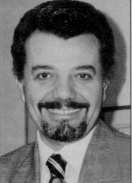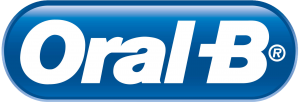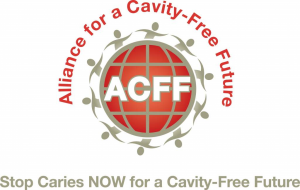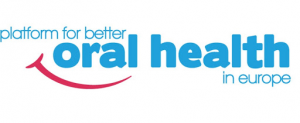
NEWSLETTER Number three October 1997
EAPD Consensus Workshop on Fluoride Safety in Europe
Executive Board Directory
Counsil Directory
Executive Office
Nominations
Comments on EAPD Constitution & Byelaws
|
Message from the President.
 Dear Colleagues, Dear Colleagues,
Most of us agree that summer vacation is the time of year that every hard working professional needs to mentally and physically relax and regroup in order to face the challenge of the year that Is ahead. Moreover, I hope that the summer vacation has been so for all the EAPD members. However, summer is over, and all of us are back in our positions ready to start another productive season and fulfil the goals we set during the last academic year. The goals we pursue are many and the tasks we have undertaken are difficult to make real in a short time, mainly because we do not meet very often and communication by other means is scarce. However, the progress we have made so far to achieve each one of these goals has also been noticeable, hoping that the year to follow will be as productive as the year we left behind. Consistent with the plans, an Executive Committee meeting took place in Athens this past June. After many hours of preparation and collaboration among the Board members, important matters for the existence, organisation and effective action of our Academy were presented, discussed and are close to being implemented into the Academy's structure and strategy. Matters that concern the recognition of our specialty in Europe, the active participation of the local Councillors, the production of an ID card, and a certificate, the interactions via e-mail and the developing of an EAPD Web Page on the Internet. Proposals for each issue were submitted to the Council and after a thorough discussion, most of them were approved whilst others needed more collaboration in order to be finalised before implementation. Nevertheless, we did not limit our efforts solely in this direction. Parallel to the Council meeting, a number of different committees met and laid out their thoughts, suggestions, and closely worked together towards the final draft of their proposals regarding their assignments to different tasks (constitution and accreditation programmes, quality assurance standards). Everybody agreed that there was plenty of time to talk, understand each other and pursue our Academy's . business at the same time. I feel positive that much of the work is done and that their proposals will be ready for discussion and final approval at the next Council meeting in Sardinia. It would have been a big omission if I did not refer to the scientific success of the Workshop on the Fluoride use and dosage for children, which we had in Athens and was organised by the EAPD in collaboration with the Hellenic group of our members, and made possible by the generous financial contribution of the Procter and Gamble Corporation. After a thorough review and discussion on critical fluoride issues related to the profession that each group was assigned to, the working groups came up with draft guidelines, which were then presented to the EAPD members present (a total of 80). These provisional draft guidelines will be published in the next issue of the EAPD Newsletter so that every member of the Academy has the opportunity to critically comment on them before or during the next EAPD meeting in Sardinia. Our goal is for the fluoride guidelines to be unanimously approved by the members at this meeting and constitute the first Academy standards on Oral Health Policy matters. I would personally like to thank the Executive Committee members and all the Councillors and members who responded to my invitation, actively participated and contributed to the success of these meetings. Their efforts towards the improvement of our Academy are highly appreciated, and I strongly feel that they pave the way for their successors to achieve even higher goals.
Constantine J Oulis
|
|
EAPD Consensus Workshop on Fluoride Safety Dosages and Use for Children in Europe June 28th 1997 Xenia Lagonissi Complex This very successful fluoride workshop was superbly organised by Professor Constantine Oulis representing both the EAPD and the Hellenic Organisation of the EAPD. A tremendous amount of work was obviously put into the organisation of this workshop by Professor Oulis and his enthusiastic young team from Athens (Elias, George and Angeliki). Their efforts were rewarded by the smooth running and great success of the Workshop. The event was generously sponsored by Procter and Gamble to whom the sincere thanks of everyone in attendance are offered. This sponsorship provided for the attendance of the invited speakers and the EAPD Councillors. The Workshop was set in the wonderful surroundings of the Xenia Lagonisi Hotel Complex. This is situated on a very scenic peninsula with numerous little bays with fantastic mews. The accommodation comprised exceptionally nice bungalows with air conditioning. This was essential as the weather was sizzling (40 C). This was a very pleasant bonus for the delegates from countries with less pleasant weather conditions (especially England which was raining when I departed or Athens). The fluoride workshop was organised to address the issue of fluoride safety in Europe and with the aim of coming up with some draft EAPD guidelines for the safe use of fluoride products. These provisional guidelines will be published in the December issue of the EAPD Newsletter so that comments can be made by all members prior to the final approval of the guidelines at the 4th EAPD Congress in Sardinia. The meeting comprised two sessions. In the morning a number of specific issues on fluoride principles and applications were presented by invited speakers. This was followed by an open discussion. In the afternoon four parallel Workshops took place (each lasting two hours) each dealing with a specific task. At the end there was a plenary session with presentation of the provisional draft guidelines. This was followed by a discussion with numerous questions from the delegates. The programme was as follows: A.M.
In the evening there was an enjoyable get-together at The Captain's House within the complex where everyone had their evening meal. Discussions pertaining to the workshop carried on to the early hours whilst sipping ouzo. Once again I would like to express my personal thanks to Constantine Oulis and his team for making this Fluoride Workshop so enjoyable as well as successful. Jack Toumba
|
||||||||||||||||||||||||||||||||||||||
|
Professor Arvid Syrrist
Arvid Syrrist was the first Honorary member of the European Academy of Paediatric Dentistry and it is with great regret that we report the death of this distinguished pioneer. Born in Oslo, Professor Syrrist received his dental education in Munich and Oslo and after service in World War II returned to Oslo where he worked with Professor Guttorm Toverud and began his interest in the dental care of children. In 1948 he moved to Sweden and was soon appointed head of the Paedodontic Department at the University of Lund, in Malmo, where he spent the rest of his professional life. Arvid Syrrist was an innovator and founded, or helped to found, a number of organizations in Paediatric Dentistry. He was a familiar figure at all the important international meetings for many years and played an active part in the formation of the International Association for Paediatric Dentistry. His influence on developments in Paediatric Dentistry and the recognition of its speciality was great and we all owe him a great debt. He will be long remembered as one of the founding members of the speciality in Europe.
|
|
|
|
Nominations are required from the members for the following posts, as per Chapter X of the draft Constitution: 1 ) President-Elect, to become President in 2000 The present secretary is Professor Martin Curzon and the Treasurer is Dr John Roberts. Periods of office for these posts are two years and cannot be held for more than six years consecutively Professor Curzon was first elected in 1994 and Dr Roberts in 1996. Both are therefore eligible for re-election. Nominations must be proposed by at least two active members of the EAPD and must be accompanied by a letter signed by the candidate agreeing to the nomination. Nominations should be sent by February 1st 1998 to the Chairman of the Nominations Committee, Professor Koch. The nominations will be presented to the membership at the next biennial assembly in Sardinia, where the elections will be held.
|
|
DIRECTORY In this issue is the first part of our directory. It is designed to be cut out of the Newsletter and kept for reference. Also for cutting out is the EAPD Abstract Form to be used for Sardinia 1998
|
|
Comments on EAPD Constitution & Byelaws Athens 27-28 June 1997 Good colleagues, In Bruges in 1996 we learned that Dr Stefaan Hansson had found our Constitution & Byelaws to be needing some revision. While there I met with Dr Hansson, but just long enough to say hi, exchange addresses with him and to bid him goodbye. Then, due to reasons beyond his control, he was unable to get back to me again with his views on the matter until earlier this year. It turns out that Dr Hansson finds our Constitution far too complicated, which he fears would entail "inaccuracies should problems arise." He points out that normally any amendment of a Constitution requires a rather high ratio of affirmative votes of a rather large quorum (in the case of our Constitution it takes all of 2/3 of the minimum of 30 voting members present). Mindful of this, he suggests that it might be to our advantage to cut down our Constitution to the bare essentials so that we are not ever likely to want it altered. The rest we could leave to the Byelaws which can be amended at will with a simple majority of the votes cast by those voting members present at the time. Further, he emphasises that the primary role of any Constitution is to be of some help if and when any problems arise. Heeding Dr Hansson’s advice, however, is affected by whether and where we have our Academy registered or incorporated. Our present Constitution states that it is organised and incorporated under the laws of the European Court in The Hague in The Netherlands. I wonder if this is the case and even if that can be the case. Before we do anything to this effect we seem to have a few questions to answer: Q1 : Are we required by any law to have our Academy registered somewhere and if so by what law? If the answer to this is a yeσ we can skip question 2. On the other hand, if the answer is nο we automatically ask question 2. Q2: Is such a registration likely to benefit us in any way and therefore a sensible option or is non-registration at all to our detriment? If questions 1 and 2 yield negative answers only, we need ask no more - the game is over. However, only one affirmative answer is needed to evoke question 3. Q3: What legal form would best fit our Academy? |





